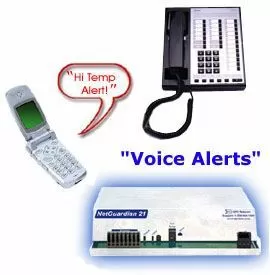Check out our White Paper Series!
A complete library of helpful advice and survival guides for every aspect of system monitoring and control.
1-800-693-0351
Have a specific question? Ask our team of expert engineers and get a specific answer!
Sign up for the next DPS Factory Training!

Whether you're new to our equipment or you've used it for years, DPS factory training is the best way to get more from your monitoring.
Reserve Your Seat Today
If you , you probably have several that only need a few alarm points. It's smaller sites like these where you've traditionally had trouble finding a perfect-fit RTU. You can't justify a full-capacity RTU when you only need a few points, but you still have to monitor the site somehow. You might not even have centralized monitoring, so you need direct reporting from the remote to your phone.
In some of these circumstances, you just want to have voice alerts. You might call someone in the field or after hours on the phone. Text messages and paging are great, but if you're in a rural area and you don't have those options, then voice alerts are a solid alternative for you.
If you simply want to leave a message on someone's answering machine or voicemail, you can do that too. And even in areas with cell phone coverage, it can be safer to hear incoming alarms while driving - keeping your eyes on the road instead of your cell phone.
You also need an RTU with a voice acknowledgement or authentication during voice alert calls, so you can require the person answering the phone to "Push 1" or "Input Your 4-digit Secret Code" to hear messages. These messages ensure that there's a human being on the other end of the line that is authorized to receive an alarm message. You wouldn't want your spouse or child to pick up the phone and miss an important alert. If the RTU doesn't receive the expected response, it can continue calling phones on its list until someone successfully receives the alarm.
You need a compact RTU that can report to an SNMP manager or issue voice alerts to a list of phone numbers. The unit has to be cost-effective so it will fit in your budget, but be careful you don't buy anything poorly made. It won't last nearly long enough, and you'll gobble up the initial cost difference when you buy replacements.
You want a small RTU that's based on time-tested engineering. and hope it holds up in an industrial site. Also, to make sure it will survive temperature extremes.
The NetGuardian 21 is the perfect-fit voice RTU for your smaller sites. It features either 2 or 4 discrete alarm points and a control relay option for controlling site equipment. You also get 2 integrated analog temperature sensors for monitoring environmental levels. One pokes out from the unit to measure temperature near the NetGuardian. The other is a port for inserting an optional probe on a long lead. This allows you to measure heat levels from another piece of important equipment at your site.
Having multiple capacity options allows you to
The NetGuardian 21 reports alarms to 1 or 2 SNMP managers via SNMPv1 or by calling a list of phone numbers and playing voice alerts. This gives you the flexibility to If you're monitoring with voice alerts and deploy an alarm master later, you can easily transition the NetGuardian 21 from voice to SNMP alerts. You can also use both reporting methods simultaneously to reduce the risk of missing an alarm.
Provisioning the NetGuardian 21 is fast and easy through the Web interface.
The NetGuardian is powered by +24vdc from an included 110vac wall transformer and is firmware upgradeable. An integrated real-time clock (RTC) allows the NetGuardian to timestamp SNMP traps and voice messages from better accuracy. To meet environmental regulations, the unit is also compliant with the RoHS 5/6 standards.
To learn more about the NetGuardian 21 RTU, at 1-800-693-0351 or sales@dpstele.com.